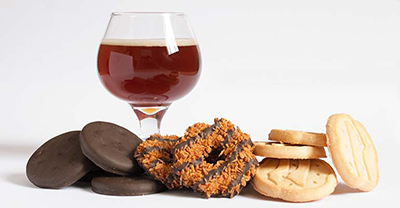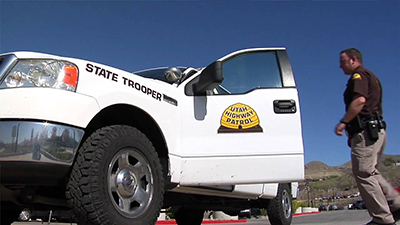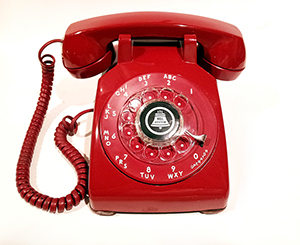Blog
Let's Not Drive Our Girl Scouts to Drink
- Details
- Created: Tuesday, March 28 2017 19:34
 There are few things as iconic as a Girl Scout, just out of class, setting up her table then tantalizing passersby with a… sharp but floral double IPA. If that seems odd to most of us, a number of local bars see nothing wrong with teaming up with Scout-affiliated adults to organize “cookie pairings.” These events feature bartenders selecting brews that “pair” well with each of legendary seasonal cookies, sales of which benefit the organization renowned for encouraging leadership in young girls.
There are few things as iconic as a Girl Scout, just out of class, setting up her table then tantalizing passersby with a… sharp but floral double IPA. If that seems odd to most of us, a number of local bars see nothing wrong with teaming up with Scout-affiliated adults to organize “cookie pairings.” These events feature bartenders selecting brews that “pair” well with each of legendary seasonal cookies, sales of which benefit the organization renowned for encouraging leadership in young girls.Alcohol Justice Public Affairs Director Michael Scippa condemned the promotion. “Leadership cannot mean leading kids to beer,” he said. “You would think the adults running these bars don’t need to be told this. You’d be wrong.”
Exposure to messaging about alcohol is associated with increased drinking in youth. It’s the simple principle that underlies advertising campaigns, and Alcohol Justice places breaking these links near the top of its goals for positive change. As with other alcohol-centric philanthropic efforts, even if sellers are donating their profits, they reap the benefit of publicity and marketing. In return, their "charity" strengthens the link between being, as Girls Scouts of Northern California Senior Director Kymberly Miller put it in an interview with NBC Bay Area, “a go-getter, an innovator, a risk-taker, and a leader…” and a drinker. These bars need to know that they are not doing these girls a favor, only making it more likely they hand Big Alcohol another underage customer.
READ MORE about how the alcohol industry markets to youth.
READ MORE about LADAPA's local efforts to reduce youth exposure to alcohol advertising.
In Utah, .05 BAC Is 100% Real
- Details
- Created: Thursday, March 30 2017 21:53
 UPDATE 5/17/17 As special interests pressure the Utah legislature to reconsider the bill, Utah lawmakers stand firm on the .05 BAC limit for DUI. Nonetheless, a June special session is scheduled to address the purported "consequences" of the bill. The bill is currently expected to go into effect on December 30, 2018. READ MORE about the challenges the 0.05 bill faces.
UPDATE 5/17/17 As special interests pressure the Utah legislature to reconsider the bill, Utah lawmakers stand firm on the .05 BAC limit for DUI. Nonetheless, a June special session is scheduled to address the purported "consequences" of the bill. The bill is currently expected to go into effect on December 30, 2018. READ MORE about the challenges the 0.05 bill faces.
In a resounding victory for common sense and public health, Utah Governor Gary Herbert signed into law a bill that sets 0.05 as the BAC limit for driving under the influence, becoming the first state in the nation to dip below 0.08. Public health proponents—including Alcohol Justice and CAPA—have long maintained that 0.05 BAC limits are a necessary and common-sense measure to reign in dangerous drivers. Gov. Herbert clearly agrees. “We’re first in a lot of things,” he told Salt Lake City’s Fox outlet, “and one thing we can be first in is prioritizing highway safety.”
A 0.05 BAC is the standard across much of the developed world, providing a clear and easy to understand threshold for compromised driving. Although there is no safe alcohol level for drivers, under a 0.05 BAC law, if you have a second drink, you absolutely shouldn’t drive. This clarity dovetails well with Utah’s traditions of state control of alcohol, and sets a laudable precedent for the rest of the country. Best, it makes Big Alcohol antsy.
“Come for vacation, leave on probation!” read ads from the American Beverage Institute, arguing that the lower threshold would tamp down tourism. Gov. Herbert, however, dismissed those criticisms, noting that much of the world abides by 0.05. Indeed, it’s hard to imagine the kind of person who picks their travel destinations by how easy it is to drive drunk as an ideal tourist board target.
Utah may be the first, but it soon may be joined by Hawaii and Washington, who are also considering 0.05 BAC bills. Utah may even be beaten to the post; despite signing the bill, Gov. Herbert is considering delaying implementation of the new limit and leaving the door open for further negotiation. Alcohol Justice applauds Utah’s maverick move for public health and safety, and urges the Governor to keep the momentum going and stand strong behind his groundbreaking bill.
TAKE ACTION to tell your state leaders that POINT .05 SAVES LIVES. All states can benefit from following Utah's lead.
READ MORE about 0.05 Saves Lives.
READ MORE about bills nationwide lowering BAC limits.
Make the Last Call Against SB 384
- Details
- Created: Thursday, March 23 2017 23:52
How to Let Sacramento Know You Oppose 4 A.M. Bar Closing Times
 One of the worst side effects of bad policy isn't just the harm it inflicts on the community. It's the feeling of powerlessness to change things. This is not one of those times.
One of the worst side effects of bad policy isn't just the harm it inflicts on the community. It's the feeling of powerlessness to change things. This is not one of those times.
As SB 384, the bill that would recklessly extend bar closing times to 4 a.m., makes its way through the Senate, Alcohol Justice and the California Alcohol Policy Alliance teamed up to organize an All-State Call-In. Held Wednesday, March 22, the event brought together supporters and advocates for community health to call the California state senators who will be voting on this bill. Now, the organizations turn to the public and urge them to make their voices heard as well.
There are many arguments that need to be made. For starters, extending bar opening hours would increase hazardous driving, assaults and injuries, and place substantial stress on already taxed emergency services. Although proponents say it will increase tax revenue, not a penny is reserved to fund medics or police. Even if it were, the contribution would pale in comparison to the over $38 billion alcohol drains out of California's economy—a cost that will surely rise with the later closing times.
Indeed, it seems the real beneficiaries will be entertainment lobbies and Big Alcohol. Time and time again, we’ve seen corporate interests circumvent locally enforced regulations. In the past, it's been liquor license caps and moratoriums; alcohol sellers have found numerous loopholes or plead for special consideration to the point where those regulations are, in the words of Mission Local, "Potent as a weak drink." there’s no reason to believe that residents of the areas affected by late last calls will be any better able to push back against slick lobbies. Meanwhile, even localities that keep a 2 a.m. (or earlier) time will find more road hazards as drinkers commute to and from later-call locales.
It's time the arguments were heard by those responsible for safeguarding—or undermining—the state. On Tuesday, March 28th, the CA Senate Governmental Organization (GO) Committee will hold a hearing on SB 384. Now is the time to call in and let them know this bill is harmful, needless, and part of an upsetting trend of kowtowing to industry.
Below, find a list of Senate GO Committee members and their phone numbers. If you need inspiration, a short script is below. Go down the list and ask to speak to a policy staff person about SB 384. It will take 10 minutes to run down the list—but stopping this bill can protect a generation.
—
| Senate GO Committee Member phone numbers | |
|---|---|
| Chairman Steven Glazer | (916) 651-4007 |
| Tom Berryhill | (916) 651-4008 |
| Steven Bradford | (916) 651-4035 |
| Anthony Cannella | (916) 651-4012 |
| Bill Dodd | (916) 651-4003 |
| Ted Gaines | (916) 651-4001 |
| Kathleen Gagliani | (916) 651-4005 |
| Jerry Hill | (916) 651-4013 |
| Ben Hueso | (916) 651-4040 |
| Ricardo Lara | (916) 651-4033 |
| Tony Mendoza | (916) 651-4032 |
| Anthony Portantino | (916) 651-4025 |
| Andy Vidak | (916) 651-4014 |
Script to Oppose SB 384
"Hello, my name is [-----NAME-----]. I'm from [-----CITY OR TOWN------], and I urge the senator to oppose SB 384 as it reaches the Senate GO Committee next Tuesday. I oppose SB 384 because it threatens the wellbeing of my neighborhood. Extending alcohol sales hours to 4 a.m. will only benefit bar and restaurant owners, leaving taxpayers the bill for the increased public health and safety risk. This is a critical issue for our state. Thank you for your time."
—
Alcohol Justice and CAPA sincerely thank everyone who takes the time to be involved. California, for all its differences, is one state, and should stand as one for the health and safety of its citizens.
More Articles ...
Subcategories
Help us hold Big Alcohol accountable for the harm its products cause.
| GET ACTION ALERTS AND eNEWS |
STAY CONNECTED    |
CONTACT US 24 Belvedere St. San Rafael, CA 94901 415-456-5692 |
SUPPORT US Terms of Service & Privacy Policy |


